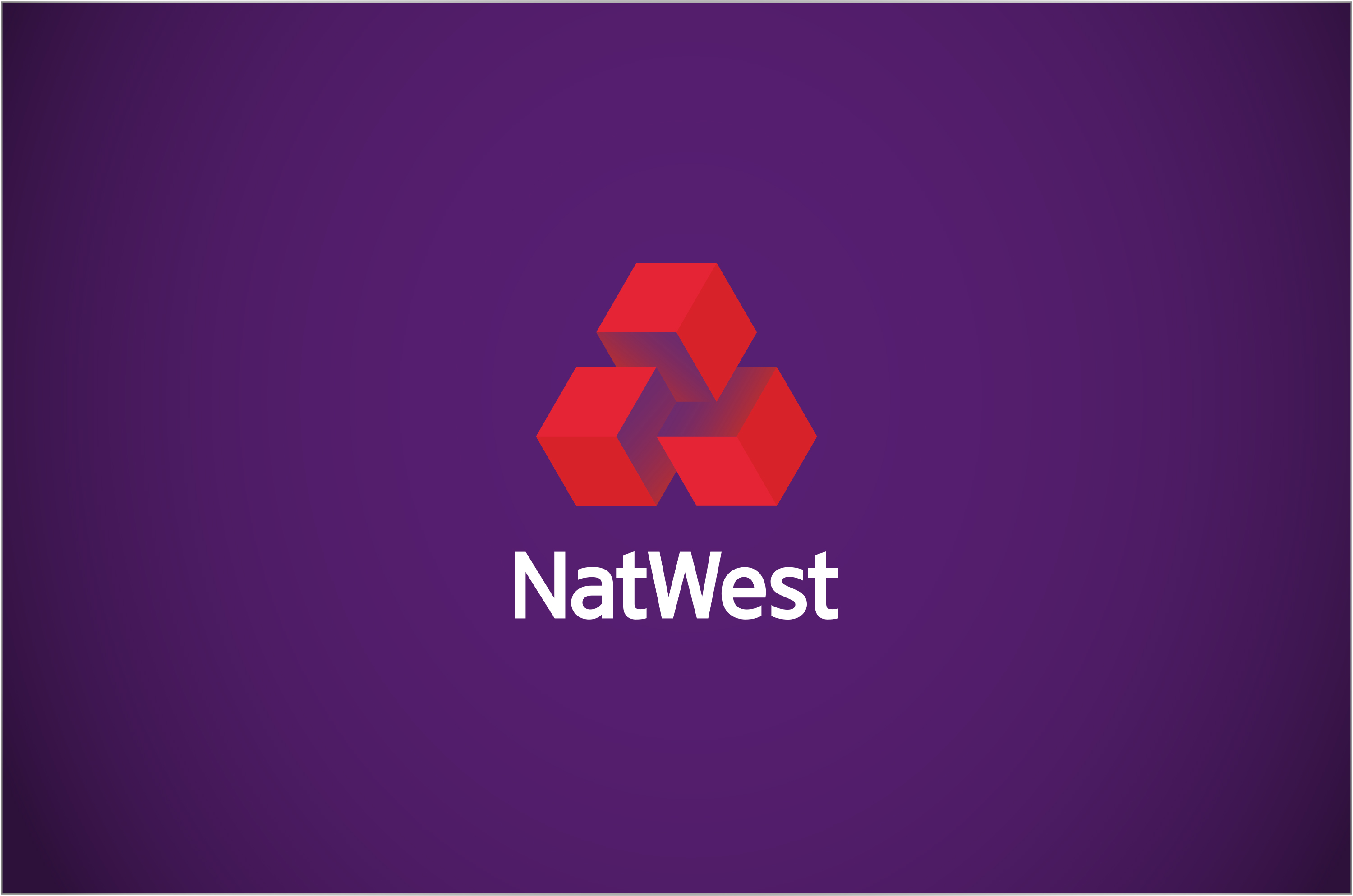Published
- 05:00 am

Temenos (SIX: TEMN), the banking software company, has been recognized as one of the best places to work in India out of 900 participating organizations by Great Place to Work®. Certification comes as a result of independent analysis carried out by the global research and consulting firm and highlights Temenos’ dedication to creating an outstanding workplace culture.
The distinction marks the fifth time Temenos has been recognized by consulting firm Great Place to Work®. In 2019, Temenos achieved separate certifications for Best Workplace in Europe, the United Arab Emirates and Luxembourg. Temenos was also named as one of the best places to work in Greece in 2018.
Achieving Great Place to Work® Certification is a testament to Temenos’ continued investment in India as a key strategic center for innovation and growth. Temenos’ regional presence has rapidly expanded across offices in Chennai, Bangalore and Hyderabad, which are the company’s product and development hubs. This remarkable growth has driven region-wide success and allowed Temenos to attract and nurture world-class talent and foster a culture of innovation and collaboration.
Max Chuard, Chief Executive Officer, Temenos, said: “It is a great privilege to be recognized by Great Places to Work® in India. At Temenos, we believe that it is our vibrant and fulfilling workplace culture, combined with our relentless commitment to technological innovation, that has made us the world’s #1 banking software company. We take pride in nurturing a unique culture that attracts brilliant people, spurs our growth and ultimately propels us forward as we continue to deliver on our vision to revolutionize banking. India has always been a pillar of Temenos’ global growth strategy and a hub for innovation. Receiving this award highlights our continued investment in this important region and dedication to delivering the most technologically advanced banking platform to accelerate the banks’ digital transformation.”
Every year, more than 10,000 organizations from over 60 countries partner Great Place to Work® Institute for assessment, benchmarking and planning actions to strengthen their workplace culture. Great Place to Work® Certification is one of the most prestigious achievements for workplace culture for organizations across the globe. For a business to be certified, 70% or more of its employee respondents must rate the organization as a great workplace. In addition, its people practices must be rated 2.5 or more on a 5 point scale by Great Place to Work® Institute.
Temenos’ consecutive success in the Best Workplace awards is indicative of its growth momentum and success as a global business. With 64 offices serving 3,000 clients in 150 countries, Temenos employees are the lifeblood of innovation in banking at a global scale. Temenos employees have a unique opportunity to collaborate on international campaigns, build crucial experience and skill sets to advance their careers, while also making an impact close to home.
Related News
- 07.10.2019 -- 12:28 pm
Janice Diner , CEO & Founder and Steve Frook, VP Sales at Horizn are speaking about company’s Digital Ambassador Tools that help to support innovation, transformation and digital adoption with employees, customers and the community.
Other Videos
- 04:00 am

Wolters Kluwer’s Finance, Risk & Reporting (FRR) business is holding its annual Client Conference in Cascais, just outside Lisbon, this week. The event, which takes place between October 9th and 11th, brings together the firm’s valued clients globally to discuss finance, risk and regulatory reporting trends and challenges. The conference also allows clients to influence and drive Wolters Kluwer’s product strategy for its integrated regulatory compliance and reporting solution suite, OneSumX.
Notable speakers include Francis Gross, Senior Adviser of the General Statistics Directorate at The European Central Bank who will explore the future of regulatory change and how the financial sector needs to adapt to technological transformations.
Patrick Dixon, Chairman of Global Change Ltd, meanwhile, will examine the strategic impact of disruption, innovation and risk, setting the landscape for the next five to 10 years, while digging deep into organizational strategy and the issues relating to future business success. Dixon is also the author of 16 books on global trends (including The Future of Almost Everything) and has been ranked as one of the 20 most influential business thinkers alive today (Thinkers 50). Igor Beuker, a new-breed trendwatcher and award-winning marketing strategist for global brands such as Nike, Amazon, L’Oréal and Unilev, will deliver the Closing Keynote that aims to challenge everyone working in today’s dynamic technological landscape.
There will also be client case studies and interactive sessions around the roadmap and product development across Finance, Risk & Regulatory Reporting, as well as smaller meetings and workshops on various topics with product team and subject matter experts from Wolters Kluwer.
Major topics to be discussed on roundtables and in expert presentations include technological game changers that drive innovation, including Artificial Intelligence, Grid Computing and Containerization for Cloud Computing. Key regulatory drivers such as the Capital Requirements Directive (CRD) V and Basel IV, as well as Risk and Finance trends (including Balance Sheet Optimization, Interest Rate Risk in the Banking Book and The Standardized Approach for Measuring Counterparty Credit Risk) will also be debated.
“As financial institutions enter an era of incredible momentum our product and technology strategy can serve as a tangible aid for clients as they seek to manage digital transformation in the context of an ever changing regulatory environment,” notes Inga Rottmann, Vice President of Global Marketing for Wolters Kluwer FRR. “The FRR Client Conference builds on our commitment to foster an ongoing dialogue with our clients. This dialogue focuses on refining our current working relationship and service offerings while assessing opportunities for future development. We are confident this only helps us and our clients further reinforce our relationship for our mutual benefit. The level of expertise – in and out of the conference sessions – from industry professionals is unparalleled. Building a better future together starts with what we do today.”
Wolters Kluwer FRR, which is part of Wolters Kluwer’s Governance, Risk & Compliance division, is a global market leader in the provision of integrated regulatory compliance and reporting solutions, supporting regulated financial institutions in meeting their obligations to external regulators and their own boards of directors.
Wolters Kluwer FRR receives frequent independent recognition of its excellence and innovation, celebrating a record year for award wins. Risk magazine recently awarded the company its coveted Regulatory Reporting System of The Year Award for the second year running and Waters Technology has named the company the Best Market Risk Solution Provider in its annual Technology Rankings. Wolters Kluwer FRR is also this year’s Category Winner for Regulatory Reporting in the annual RiskTech100® report. This comprehensive study of the world’s leading risk and compliance technology companies is compiled by Chartis Research. Notably, this is the seventh time in eight years that Wolters Kluwer FRR has achieved this honor. Chartis Research has also named the firm a Category Leader in both its IFRS 9 Technology Solutions Report and CECL Report.
Related News

Thomas Rex
SVP at Fingerprints
Innovation comes in many forms. It makes the world around us look better, work faster and be more useful for companies, consumers and communities. see more

Steve Morgan
Senior Director at Pegasystems
This year, we were lucky enough to have Sibos hosted in London. see more
- 09:00 am

The first biometric fingerprint credit card issued by a UK bank begins its three-month national trial today. NatWest is piloting cutting-edge, biometric fingerprint technology with 150 customers, in partnership with Mastercard and Gemalto, a Thales Company.
The bank has previously piloted biometric debit cards, but this will be the first-time credit cards have been issued. The biometric credit cards will offer contactless payments using fingerprint verification for transactions up to £100, an increase on the current £30 limit.
As well as retaining contactless functionality, the fully integrated card can be used as normal in ATMs and for online shopping. Additionally, there are no hardware changes needed to accept biometric cards, so cardholders can use them at existing contactless and Chip and PIN terminals. The card is powered through the card terminal and when a customer presents a card, a green light on the card indicates that the fingerprint has been matched successfully.
Enrolment is simple and takes as little as five minutes. A customer can register in the comfort of their home using a plastic sleeve. Once a digital fingerprint is locked onto a card, it cannot be changed. The user’s biometric data never leaves the card, is never shared with the merchant or bank, and no fingerprints are stored in a cloud. This ensures that biometric data cannot be accessed or used outside the card.
Georgina Bulkeley, Director of Innovation, NatWest said: “After the successful pilot of our biometric debit card we are looking to test the technology further with credit cards. This is the biggest development in card technology in recent years and not having to enter a PIN not only increases security but makes it easier for our customers when paying for goods or services.”
NatWest is working closely with Mastercard and digital security company Gemalto to bring the service to customers in the UK.
Bob Reany, Executive Vice president, Identity Solutions, Mastercard added: “Feeling confident that your information is protected is paramount. We, along with our partners, are building biometric cards that recognize an individual rather than a password or PIN. Biometrics are more secure, more trusted and better suited to a world that requires more frequent authentication.”
Howard Berg, Senior Vice president, UK Ireland and Switzerland of Gemalto, a Thales Company, said: “Biometric have a big role in the future of payments and we’re pleased that more NatWest customers will be the first to try out this simple, convenient and secure way to pay. Authenticating payments with a fingerprint isn’t just easy – it boosts security and opens the door to larger contactless payments. We’ll work very closely with NatWest as the trial progresses to address feedback from users and make sure they’re getting the best experience possible.”
Related News
- 07:00 am

Digital consultancy, 4C, has released new research today revealing financial services companies are losing millions of pounds due to manual processing of agreements. The average loss is over £10 million a year, while three in ten (31%) finance companies lose £1 million or more a year.
The survey of 100 finance professionals, manager and above, also found lack of automation is resulting in wasted resource, with financial services companies spending an average of 78 hours per month processing agreements and on one in ten (13%) spending over 200 hours per month - equivalent to one working month.
Jani Van Hecke, Head of Contract Lifecycle Management Practice at 4C said: “Businesses often neglect the non-customer-facing part of the business, so it’s no surprise that the manual processing of agreements is resulting in lost money and time for financial services companies. This research highlights the true scale of the problem that outdated processes create and serves as a wake up call to the industry.”
Significant findings from the report include:
● Only 11% of financial services companies have a fully automated process for managing their agreements.
● Only one in twenty (7%) agreements have access restricted to the named owners
● The vast majority of financial services companies (93%) have experienced issues as a result of non-automation and 47% have suffered financial losses as a result
- Issues cited include human error, such as incorrect document disposal (56%) and time delays to projects (49%). A similar proportion (47%) have suffered financial losses as a result of manual processes, while a further two in five (43%) have seen agreement crossover, with people signing different versions of the same document. Just over a quarter have suffered non compliance (30%) or other legal issues (25%)
● Around two in five financial services companies (39%) admit to having unintentionally allowed an agreement or contract to expire
● At the same time, three in five (61%) see full digitisation and automation of their manual agreement processes as very important to their business
● Half of financial services companies who have not yet fully digitised cite cost (47%) as a barrier to moving in this direction, while four in ten reported concerns around data security (42%) and company culture (39%) as key barriers
● Despite these barriers, financial services companies can see the benefit in fully digitising their agreement processes. The key perceived benefits among those still operating at least some manual processes are data safety (39%), higher employee productivity (36%) and an improved customer experience (34%). Greater compliance and positive environmental impacts are also perceived as a benefit for three in ten (30 % and 29% respectively)
Gareth Stephens, UK CEO at 4C said: “It’s encouraging to see that financial services companies recognise digitisation and automation of their manual agreement processes is so important to their business. Cost and data security were cited as barriers to automation, yet our report shows that access to contracts is currently open within businesses and that manual processing is hurting revenues. By shifting company culture to make agreement automation a priority financial services companies can protect their data and drive business growth.”
Related News
- 01:00 am

London-based fintech firm Mode has opened a waiting list for its soon-to-be-launched crypto banking mobile app, designed to make cryptocurrencies, and all their untapped financial benefits, accessible to everyone at the touch of a button.
With its new product, Mode aims to bring down barriers and open up the world of cryptocurrencies to everyone, not just the tech-savvy and the traders. The Mode app will be an easy pathway for everyone else to get immediate access to this revolutionary new asset class.
Mode will release an early version of the app for iPhone-users in October. Through it, users will be able to easily buy Bitcoin and safely store it within the app. Products for investing, saving and borrowing are already part of the company’s product roadmap. Further details on these will be announced in the following months.
The new offering has been designed to address the issues faced by the cryptocurrency consumer market such as transaction restrictions, low speed/high cost, lack of security and poor user experience.
Mode is part of R8 Group, a UK fintech group which raised $5m in an oversubscribed funding round in April 2019, and is backed by an experienced management team with extensive experience in the financial services and technology sectors, including serial entrepreneur Jonathan Rowland and Twitter co-founder Biz Stone.
Mode launched their first product earlier this year, giving businesses a flexible lending solution whereby they could leverage the value of their digital-asset holdings to finance business operations or a new business idea.
Ariane Murphy, Head of Communications and Marketing, Mode, said: “We’re hugely excited about the future potential of Mode and this launch is our latest step towards building a secure, integrated full-feature platform.”
“From launching our lending product for businesses earlier in the year, we identified a clear consumer appetite for something new as there isn’t currently anyone offering the all-in-one experience retail customers are searching for on neo-banking apps. We hope that through our Mode app we can meet the expectations of both the crypto community and the new people coming into the space, as well as continuously deliver new features and experiences. There’s lots to be excited about.”
Related News
- 09:00 am

Business coaching giant, ActionCOACH, has become the latest official partner of the Northern Powerhouse, joining forces to boost the profile of the North as a key place to do business in the UK. ActionCOACH, the world’s largest business coaching firm, currently works with business owners from all over the region, supporting entrepreneurship, business growth, whilst creating employment, wealth and economic vibrancy. The partnership provides the perfect opportunity to take things to the next level.
The Northern Powerhouse forms part of a government initiative to highlight the scope of opportunity for northern businesses and hopes to improve the quality of life – but not just for businesses, for the economy and the general public too. The ethos aligns perfectly with ActionCOACH’s vision to create abundance through business re-education.
“The alignment of our two brands is a fantastic opportunity to celebrate the results delivered by both parties in making the North a great place to do business and live ,” says Ron Maycock of ActionCOACH, who’s based in the north. “Working together with the Northern Powerhouse and their partner programme we aim to make the North the beating heart of the UK economy, whilst positively impacting on as many people’s lives as possible.
“By forming the partnership, we hope to increase awareness of life in the North and create momentum towards our objective of developing sustainable, high performing businesses, which will in turn attract talent from all over the world to our region. The work our business coaches do, meets the Northern Powerhouse goals for the growth of the economy and we would encourage everyone to pull together, get involved and make a difference.”
With 43 ActionCOACH teams working in the region, their large central sales office in Sheffield and their commitment to bring abundance to every business they coach, ActionCOACH have committed on every level to the vision of the Northern Powerhouse.
“I’m delighted to welcome ActionCOACH to our rapidly growing Northern Powerhouse Partners Programme,” says Rt Hon Jake Berry MP, Minister of State for the Northern Powerhouse and Local Growth. “With their commitment to supporting businesses and entrepreneurs across the Northern Powerhouse and throughout the UK to thrive, they are well placed to help us shine a spotlight on talent in the region and demonstrate what the North has to offer.”
The Northern Powerhouse is the Government’s vision for a super-connected, globally-competitive northern economy with a flourishing private sector, a highly-skilled population, and world-renowned civic and business leadership. The Northern Powerhouse Partner Programme is an essential part of creating the Northern Powerhouse. Government is growing a network of partners who all believe strongly in the economic potential of the North and support the need for a combined effort by government and business to realise that potential. There are businesses and organisations from across the North, from a variety of sectors, signed up to the partner programme.
Related News
- 08:00 am

More than 60 delegates from the UK’s leading banks and other financial organisations have been told that the whole sector can work more closely together in order to stay one step ahead of fraudsters. That was one of the key messages shared at The 5th Annual Conference for Cheque Imaging & Remote Deposit Capture, which was held recently (Thursday 3rd October) in London.
Operating under The Chatham House Rule, the event was hosted by The TALL Group of Companies, the UK leader in the provision of secure paper and electronic payment solutions, in conjunction with Digital Check Corporation, a worldwide leader in the manufacture of cheque scanners.
The seminar, held at Stationers’ Hall in the City of London, was the latest instalment of the annual event that is designed to help financial institutions, the banking community, building societies and major cheque users, understand the realities of image capture – following the full roll-out of the new Image Clearing System (ICS), which was initially launched in October 2017.
A senior figure from the industry told attendees that the migration of ICS across the UK was now 100% complete, and that the new system’s “philosophy is much more than pure infrastructure”. It was also indicated that the sector has seen a reduction in the number of unpaid cheques since ICS was implemented, whilst tracking image quality continues to steadily improve with capturing banks (those tasked with capturing a digital image of a cheque) having made adjustments to their own capture solutions.
The audience also heard from experts from both the US and France who were able to shed light on the opportunities available to UK-based businesses now the modernised clearing model is now in place. They provided valuable insight into their own respective marketplaces, where cheque image clearing has been in place for a number of years. One speaker, who had travelled to the event from Boston, Massachusetts, explained that whilst the roll out was now complete, “this is certainly not the end”. He said: “The UK is now starting a marathon. The introduction of ICS is the starting point and there are a number of exciting opportunities down the road.”
The speakers also discussed the latest figures with regards to international cheque truncation and Remote Deposit Capture (RDC), as well as providing the audience with an update on how they can clean up their capture processes in order to limit costs resulting from errors, as well as helping to guarantee an exceptional customer experience.
On this topic, Gordon Madgwick, Independent Cheque Expert, from The TALL Group of Companies, explained that Image Quality Assessment (IQA) is in place to avoid the input of poor quality images into the clearing system, which can lead to delays for the end customer, an increase in ‘no pay’ items, and potential reputational damage to ICS itself and the collecting bank.
He added: “It is important that we, as an industry, get IQA right, in order to minimise disruption, avoid aggravation and to ensure end users remain happy customers.”
Finally, delegates heard from Martin Ruda, Managing Director of the TALL Group of Companies, on how the industry was continuing to invest in the development of cheque fraud prevention tools and Image Survivable Features (ISF). He said: “Fraudsters have specifically targeted the weak spots of ICS, which has led to an increase in losses to fraud since 2017. However, at the same time, the total losses prevented have grown massively too, which illustrates that the industry is doing a decent job. As we move forward, the increased adoption of new cheque fraud prevention techniques will further enhance the payment method. The industry must strive to stay one step ahead of the fraudsters by reinforcing existing anti-fraud features, by investing in the innovative ISF tools currently being developed, and by working more closely together.
“This is the fifth year we have hosted this conference and it is clear the industry’s appetite to attend, network and learn about the latest developments surrounding ICS and image capture from across the world is now stronger than ever. I would like to thank all of our speakers, as well as every delegate, for contributing to a fascinating and insightful event.”









